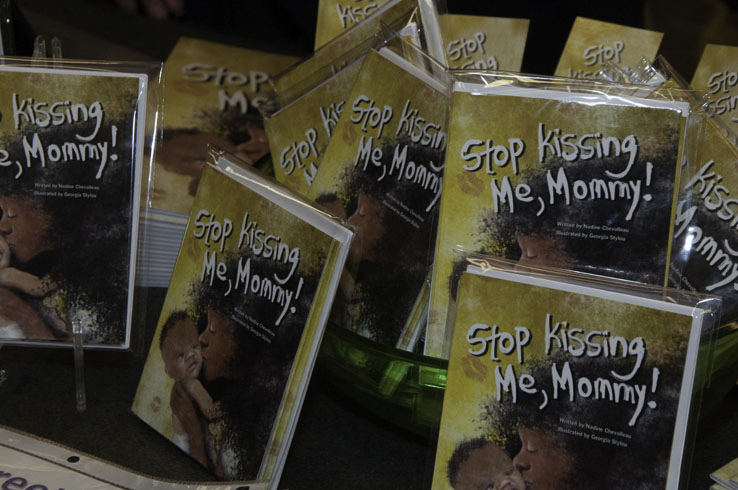Out of all the mediums experiencing trials and tribulations during the digital age, the printed page seems to be the most persistent. Cable TV continues to fight, but is on its last leg. Music has had so many different formats and hardware over the past decade; it’s hard to recall the majority of them. So what makes books still appealing in the digital age?
For independent Canadian publisher and urban fiction author, Stacey Marie Robinson, it’s a matter of affinity.
“I buy e-books all the time and it’s easy come, easy go. [We have] so many gadgets and it takes away from the power of the written word.” – Stacey Marie Robinson
“You can’t replace it,” Robinson says. “I buy e-books all the time and it’s easy come, easy go. [We have] so many gadgets and it takes away from the power of the written word. The actual physical act of publishing that a lot of us love. The crafting of the book covers and the way the text is written, there’s an art to it, so you kind of want to celebrate that.”
The thought of self-publishing a printed book in today’s digital age is a daunting one. Setting aside the actual writing of a manuscript, the editing, proofing, cover designing, copyrighting and other minutia can fall squarely on the author’s shoulders or deeply in their pockets. Building a community of like-minded authors is a great way to get tips, bounce ideas and stay motivated in what can be a difficult enterprise.
Robinson decided to create the Toronto Urban Book Expo (TUBE) to give authors a way to get together with their peers.
“I said wouldn’t be nice if I could have one place to sell my book and tell everybody to come and kind of do it on my own accord,” she reflects. “Then, [I just started] thinking that there are other people like me who don’t have a place or are not necessarily in Chapters.”
While taking a break from making her rounds at the last TUBE event in February, Robinson iterates: “Also because of the theme of urban fiction, I thought that it was something new enough to Canada that maybe if I started my own event rather than piggy backing on another existing event, I could raise awareness of this type of literature.”
Hard Copy in a Digital World
The question remains of whether there is an inherent value in the physical book that may be lost with its translation to 1s and 0s. In 2013, the Google Book Settlement Agreement made waves in the book-publishing world. It came as a result of when, just over a decade ago, Google started digitizing books without permission and allowing users to search for snippets through their various services. The Authors Guild and the Association of American Publishers launched a class action lawsuit that was ultimately dismissed.
Not only did it raise questions about copyright infringement in the digital age, it also highlighted the growing divide between classic paper books and e-books.
Every generation past had its unique mediums and not many have lasted. Kids are getting smart devices at younger and younger ages, so communicating the advantages of a classical medium becomes increasingly difficult.
This is where the public library plays an important role for up and coming authors. Introducing reading through books at a young age is a hard habit to break.
Self-published author Nadine Chevolleau’s love of children’s books fits this ideal perfectly.
“For me, I think especially with children’s books, there are a lot of books leaning towards eBooks,” says Chevolleau, while on site at TUBE. “But in the school system and in the public library people still like to have a physical book in their hand. To flip through and turn the pages and point to the pictures – I still love it.”
Chevolleau’s children’s book Stop Kissing Me, Mommy! is bright and lively. Its illustrator, Georgia Stylou, has a unique style that immediately grabs attention. The image of a baby frantically trying to avoid his mother’s affection is heartwarming and relatable.
“When parents walk by and they see the front cover of the book they laugh, because they get it right away,” she says. This particular interaction highlights a palpable factor that is hard to duplicate digitally.
Close to a decade after the first Kindle went on sale, e-books still sell less than books in many instances. In fact, book sales have seen resurgence much like vinyl records over the past few years.
As e-books become more ubiquitous, the sensory connection to chemical wood pulp is being replaced by the familiarity of an LCD. Yet there’s something about reading a book that is frankly just more human. And until we’re fully immersed in a virtual reality, the printed page will remain a romantic escape for many, Robinson included.
Photos By. Janelle Scott-Johnson





Comments are closed.